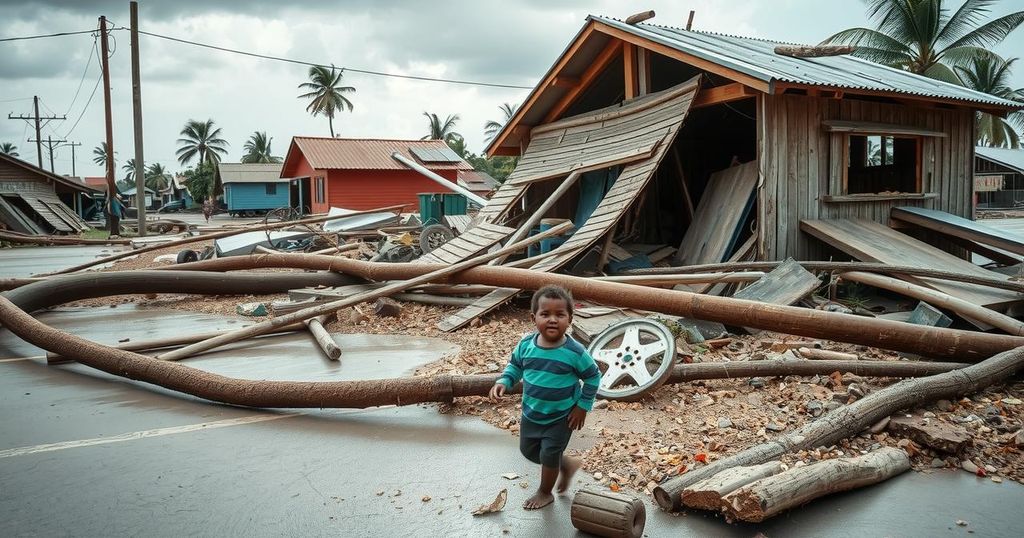Cyclone Chido Devastates Mozambique, Affecting 90,000 Children and Thousands of Homes
Cyclone Chido has severely affected Mozambique, damaging more than 35,000 homes and impacting over 90,000 children in Cabo Delgado province. The storm has destroyed health facilities and classrooms while exacerbating existing conflicts and food insecurity. UNICEF is leading a humanitarian response, emphasizing the need for urgent financial assistance to address the crisis.
Cyclone Chido has wrought significant destruction in Mozambique, particularly in Cabo Delgado province, affecting more than 90,000 children and damaging over 35,000 houses. The cyclone, which struck on Sunday, has also devastated critical infrastructure, including classrooms and health facilities. UNICEF has highlighted the already precarious situation of children in Mozambique, emphasizing the underlying issues of conflict, climate change, and disease outbreaks that exacerbate the impact of such natural disasters. Despite these challenges, UNICEF, along with various partners, is mobilizing resources for urgent humanitarian assistance.
Mozambique is increasingly vulnerable to climate change, which has led to frequent and severe weather events. The recent Cyclone Chido is a part of this troubling trend, impacting an area already affected by protracted conflict and food insecurity. With millions requiring humanitarian aid, the resilience of communities is being tested as they face not only environmental challenges but also socioeconomic instability. UNICEF’s involvement underscores the need for both immediate and long-term support for the affected populations, especially children.
In conclusion, Cyclone Chido has highlighted the urgent humanitarian needs in Mozambique, particularly for the children vulnerable to the combined impacts of climate change and ongoing conflict. With thousands of homes destroyed and critical infrastructure impacted, substantial support is essential for recovery and to address the looming food insecurity. UNICEF’s call for funding reflects the pressing need for coordinated efforts to mitigate these growing crises and support the affected communities effectively.
Original Source: reliefweb.int




Post Comment